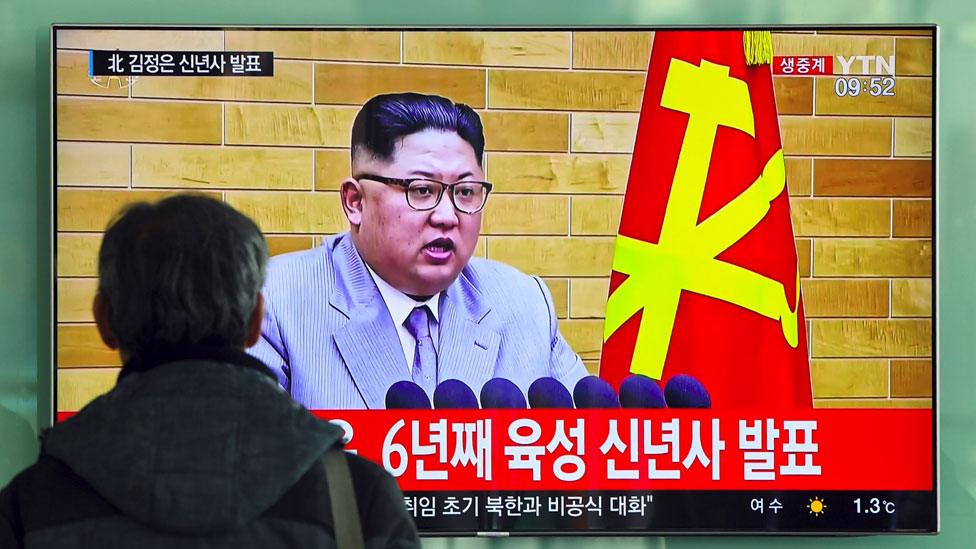Paralympic Games: 'No joint Korean march' amid flag dispute
- Published
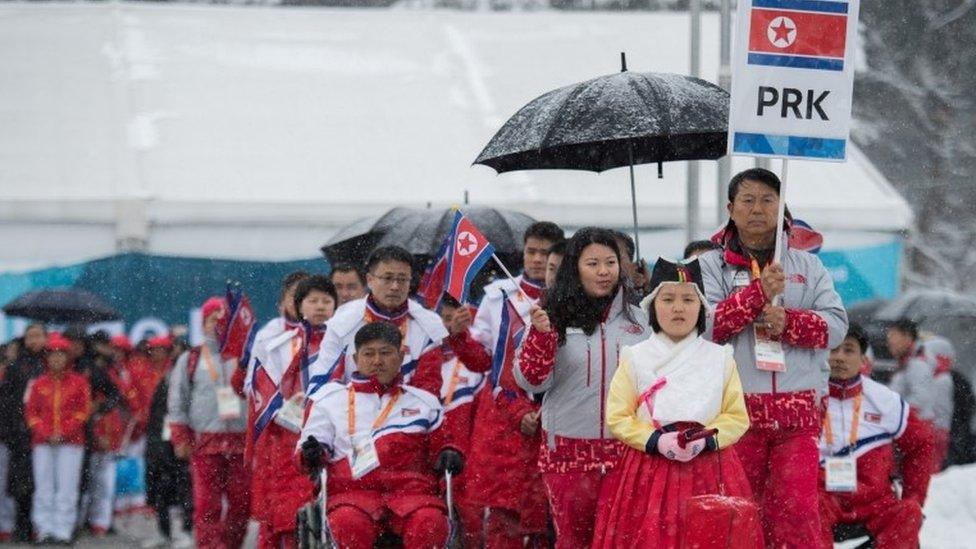
The North's Paralympic team has arrived in Pyeongchang
The two Koreas will not march together at the opening ceremony of the Winter Paralympics in Pyeongchang on Friday, officials in the South have said.
The North had wanted disputed islands to be put on a unified flag but the South disagreed.
The two nations marched together under an agreed unified flag at the opening of the Winter Olympics on 9 February.
That had been seen as part of a gradual rapprochement in bilateral ties and the nations later agreed a leaders' summit.
The summit is expected to discuss how to reduce tension on the peninsula.
"After discussion with the North, the two Koreas decided not to march together at the opening ceremony," the South's Yonhap news agency quoted the South Korean Paralympic Committee (KPC) as saying on Thursday.
The unified flag shows the Korean peninsula in blue on a white background.
The KPC said the North wanted the South's Dokdo (called Takeshima by Japan) islands, which Japan claims, on the flag, saying the omission hurt Koreans.
The South said inclusion would run counter to the International Paralympic Committee's recommendation not to politicise sports events.
The KPC said the two Koreas had decided to respect each other's stance and march separately.
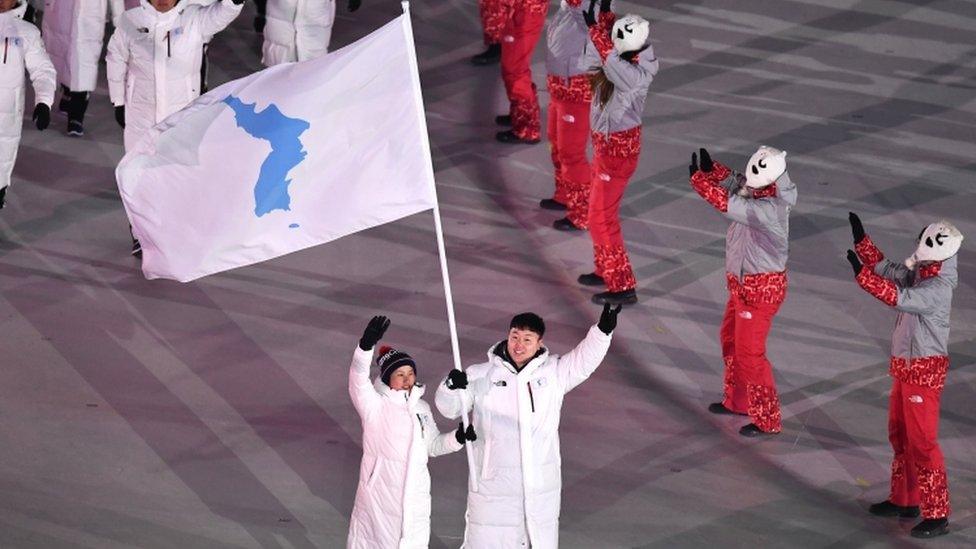
The nations marched under the unified lag at the opening of the Winter Olympics
The apparent rapprochement over the Winter Olympics had seen the selection of a joint women's ice hockey team, the deployment of a squad of North Korean cheerleaders and most significantly a high-level Northern delegation that included Kim Yo-jong - the sister of North Korean leader Kim Jong-un.
The charm offensive was hailed by some as a breakthrough in relations but conservatives in the South issued warnings and the US was unmoved in its tough diplomatic stance.
Message to the US
In the wake of the Games, the two Koreas held a landmark diplomatic meeting in the North's capital, Pyongyang, earlier this week.
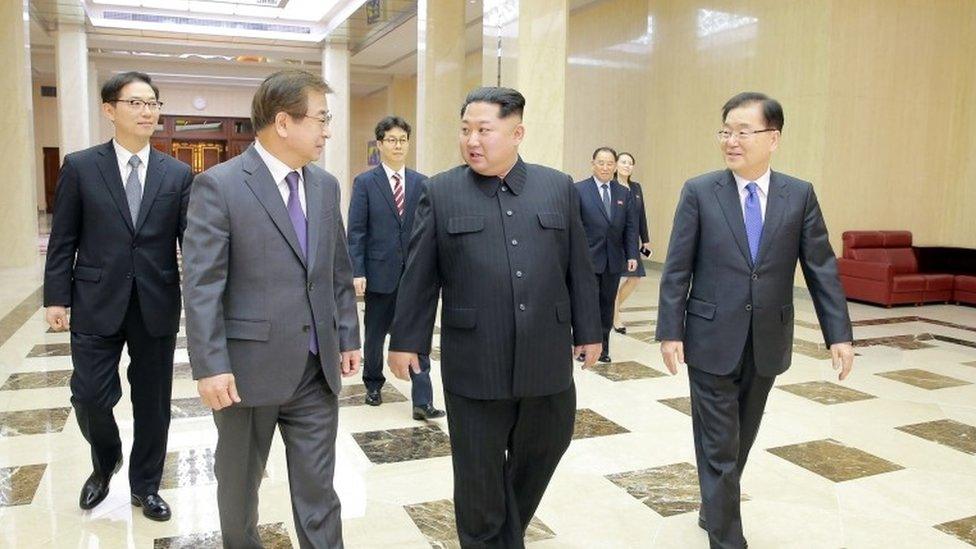
South Koreans had an apparently cordial meeting with Kim Jong-un (centre) in Pyongyang this week
The US, which only this week increased its sanctions on Pyongyang over the death in Malaysia of Mr Kim's brother, Kim Jong-nam, has said it is open to talking to North Korea but only if it commits to denuclearisation.
China has welcomed the forthcoming talks but warned it was too early to assume they would bring a lasting breakthrough on the central nuclear issue.
The past year has seen a rising war of words between the US and North Korea, with the North test-firing increasingly powerful missiles.
The last time major international talks were held to persuade North Korea to disarm were the Six-Party Talks involving North and South Korea, the US, China Japan, and Russia.
North Korea agreed to shut down its nuclear and weapons programme in exchange for aid and reduced sanctions.
But the talks broke down in 2008 after failing to agree on how to verify the North's commitments, and in 2009 North Korea conducted its second nuclear weapons test.
- Published28 February 2018
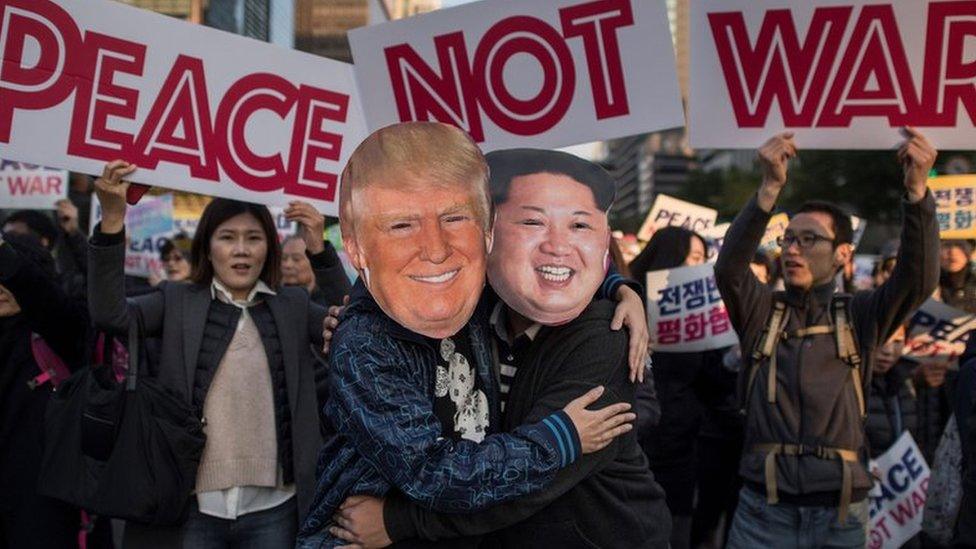
- Published20 February 2018
